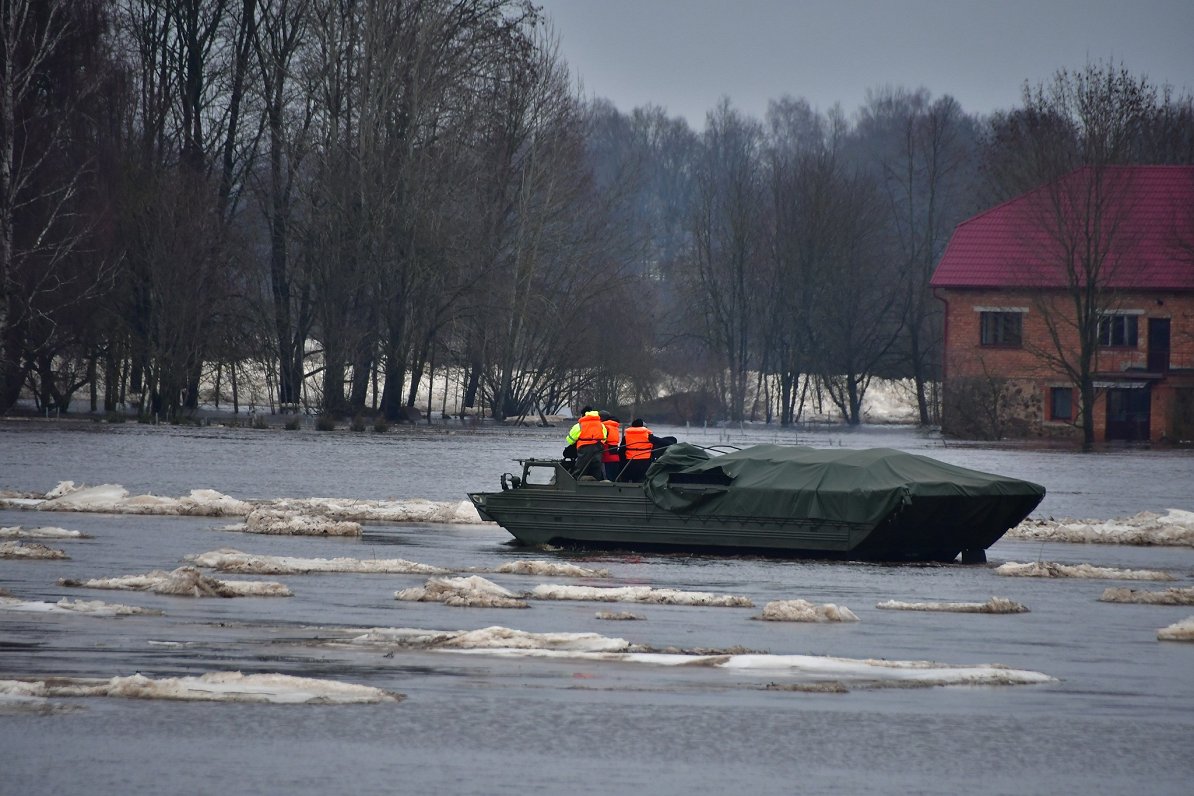Centralized water supply systems are better protected from the entry of external pollution than individual sources of drinking water, particularly wells. During flooding, surface waters and sewer content may flow into wells, which may become the cause of infectious diseases in the intestines. The range of these diseases is broad, covering dysentery, viral hepatitis A, mouse, rat, and other rodent-borne leptospirosis and yersiniosis, including in rare cases cholera, typhus, and poliomyelitis.
The Health Inspectorate shall perform supervision and control of drinking water or tap water in central (public) water supply systems. The water supplier shall be responsible for the state of the centralized water supply system and for the quality of the water supplied.
The population who use individual water intake sites should take measures to prevent the health risks from the floods themselves.
Prior to flooding, measures should be taken to reduce potential environmental pollution and risks to human health, for example by pumping wastewater holes and ensuring that different chemicals are stored in safe places.
In the event of a flood threat, water supplies should be provided. The Inspectorate calls on residents in flood-affected areas to also use cooked water or pre-packed water after the end of the floods.
Following the end of the floods, it is necessary to take measures to recover the environment, such as the cleaning (exhaustion) and disinfection of wells, basements, and other contaminated sites. Well-water testing should be carried out by the population itself if it is suspected that the wells in the water may have been exposed to different chemicals and/or contamination.
If, however, despite the precautions taken, nausea, abdominal pain and diarrhea (first signs of infection in the gut) or nausea, increased temperature, jaundice of the skin and eyeballs, pain in the right lower ribs, dark urine (signs of hepatitis virus) are detected, the doctor should be consulted immediately.



























